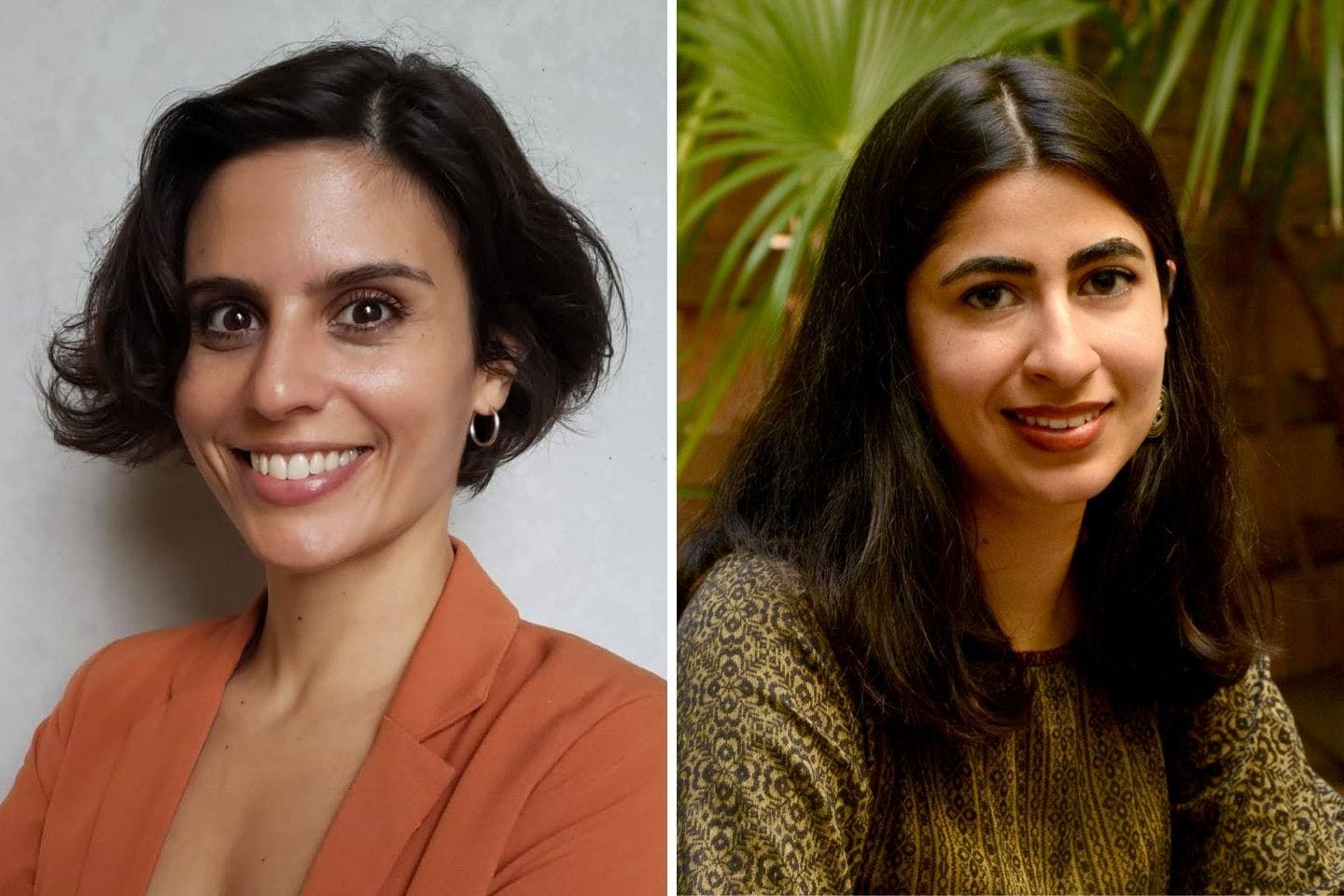
Anthropology, Sociology
This piece was originally featured on Research Matters.
Liliana Gil and Sidra Kamran have received Mellon/ACLS Dissertation Completion Fellowships for the 2021-2022 academic year. Now in its fifteenth year, the fellowships “support a year of research and writing to help advanced graduate students in the humanities and social sciences in the last year of PhD dissertation writing.”
Liliana Gil, an Anthropology PhD candidate, will utilize the fellowship to complete her dissertation, “Beyond Make-Do Innovation: Practices and Politics of Technological Improvisation in Brazil”; apply for jobs; and, if conditions permit, conduct follow-up fieldwork with electronics industry workers in Manaus, Brazil.
Gil’s work is driven by a commitment to questioning hierarchies of knowledge. “Perhaps because I come from a working-class background, I’m drawn to the puzzle of how certain knowledges are recognized as skilled and expert vis-a-vis others that are just as demanding and vital to society,” she explains. “These rankings of value reflect structural forms of inequality – pertaining race, class, and gender – but also other historical and sociocultural factors. In my current project, I get to explore these issues by studying how historically and socially embedded forms of improvisation play a role in different spheres of tech production in Brazil.” Her main advisor is Hugh Raffles, Professor of Anthropology, and she also works with Miriam Ticktin, Associate Professor of Anthropology.
“I was truly honored,” says Gil of receiving the grant. “But I also took a moment to recall all the invisible work that went into this application. This was my second time applying and I was luckier this time around. Although it’s important to celebrate these achievements, I think we focus too much on accolades and don’t discuss ‘failure’ and ‘fortuity’ as part of our jobs. This can be very taxing, especially for first-generation college students. Fortunately, I have peers and mentors who are open about these issues.”
In addition to the Mellon/ACLS Fellowship, Gil has received a Wenner-Gren Dissertation Fieldwork Grant; a National Science Foundation Doctoral Dissertation Improvement Grant, co-sponsored by the Science and Technology Studies and the Cultural Anthropology Programs; and the 2020 David Hakken Graduate Student Paper Prize, conferred by the Committee for the Anthropology of Science, Technology & Computing of the American Anthropological Association, for an essay on innovation practices at a public fablab in the periphery of São Paulo in Brazil. She also received a 2020 New School’s Outstanding Graduate Student Teaching Award for her work creating and teaching an undergraduate “World Histories of Anthropology” course.
Sidra Kamran, a Sociology PhD candidate, will utilize the fellowship to complete her dissertation, “The (In)Visible Workers: Gender, Status, and Space in the New Service Economy in Pakistan,” as well as finish work on a journal article.
As Gil mentioned, much invisible labor and time go into applying for academic grants. When Kamran learned she had received the ACLS/Mellon Fellowship, she felt both happy and relieved. “I could stop applying for other fellowships and take some time off!” she says.
Kamran’s work broadly examines the interaction between changing gender and class norms. “In my dissertation, I use qualitative methods to understand how women beauty and retail workers navigate new types of status positions, work, intimacy, and urban life in Karachi, Pakistan,” she explains. Her advisor is Rachel Sherman, Professor of Sociology.
“I am involved in feminist and labor movements in Pakistan and the U.S., but as a researcher I explore how structural changes ostensibly unrelated to social movements shape gender and class equality,” Kamran continues. “I plan to examine how these supposedly ‘non-political’ processes interact with ‘political’ struggles.’” Her other research investigates how working-class women are active, if unlikely, participants in emerging forms of digital culture on TikTok in Pakistan. She is also interested in global flows of labor, social reproduction work, and the intersection between love, work, and money, and is inspired by Marxist-feminist approaches to these topics.
Kamran has also received a Junior Research Fellowship from the American Institute of Pakistan Studies, a Wenner Gren Dissertation Fieldwork Grant, and a Graduate Fellowship from the Heilbroner Center for Capitalism Studies at The New School.